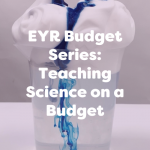So far in our Budget Friendly blog series, we have covered two of the core curricular topics: literacy and science. Today’s blog follows this up with our favourite ways to teach Maths on a budget!
5 ways to teach maths on a budget
1. Free online resources
With a wealth of free downloadable resources available online – there is guaranteed to be something for every child. No matter their developmental stage. We offer a variety of these free resources ourselves and among them are:
- Outdoor classroom day scavenger hunt. This downloadable scavenger hunt is a great way for children to practice their number recognition and counting. The task is simple – head outside and hunt for the correct number of objects specified on the sheet. Examples include 10 stones, 2 flowers, 8 sticks etc. This is a great way to develop early maths and encourages children to get outdoors without needing a single resource to be purchased!
- Activity worksheets. From downloadable displays to support number recognition to a fun count the wheels activity there is a variety of activity sheets available online that will help children to consolidate learning from the classroom. Why not check out our KS1 number and place value workbook or our KS1 ordering numbers workbook? Both were created by teachers with the guarantee of supporting learning.
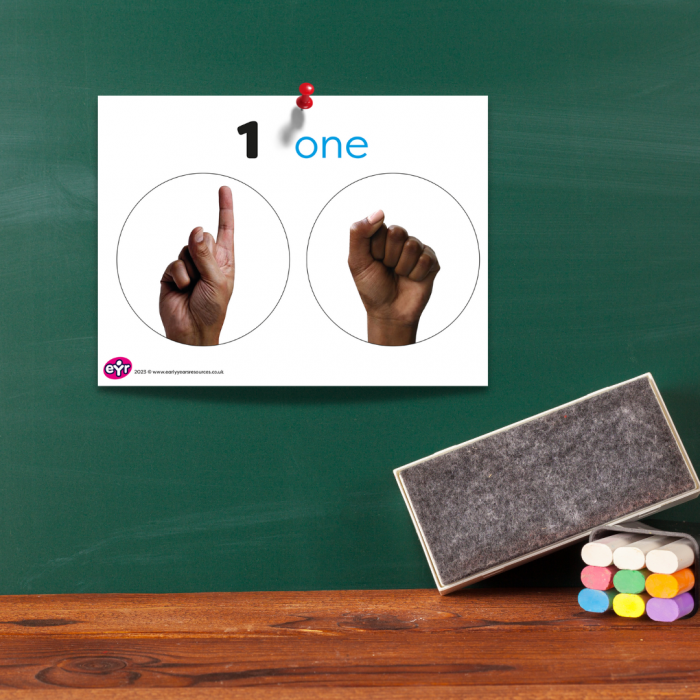

2. Use natural resources
Whether it’s for Outdoor Classroom Day or beyond, natural resources are a great way to encourage learning without any additional costs. You can be as creative as you like when it comes to thinking of maths activities using natural resources and we have added some of our favourite examples below:
- Telling the time: practice telling the time using twigs and rocks/wooden stumps as the clock face. Simply write the numbers 1-12 on the stumps/rocks and then ask children to move the twigs or “clock hands” to show different times.
- Colour and size sorting. This is a great activity to encourage children to think analytically and categorise objects according to different rules. Why not encourage children to sort objects by colour first, then rethink and sort them by size or shape? A great resource to use for this would be our Five Frame Rail or our Five Frame Tray.
- Follow patterns and symmetry. This is another really simple activity to be done with resources found outside. Using a piece of chalk, draw a line along the ground and place random collected objects on one side in some formation. Your little ones will then have to hunt for similar objects to mirror the pattern created on the other side of the chalk. Similarly, why not create a pattern from random objects and ask children to mirror or continue it?



3. Make use of ordinary items
Using items you can find around your setting just requires a little imagination to incorporate into lessons that children can learn from. Here we have 3 simple examples:
- Shape Mystery Bag. Somewhat like the random story bags mentioned in our budget-friendly literacy blog – these mystery bags can be filled with random items from around your setting. Children will then have to reach into the bag to feel for an object and identify its shape. This can also be done in a group activity by having one child describe the shape to the group to encourage teamwork and communication.
- Simple playing cards. Cards can be easily used to teach maths as they show not only the numerical value but often a visual representation of the number also. Why not try and play a game of higher or lower with children so that they can begin to understand numbers in relation to one another? For a more challenging game for older children, why not play a simplified version of 21? Your little ones will then be tasked with adding numbers together to hit a target whilst playing a fun game!
- Coins can be easily used for children to practice sorting. Challenge children to sort by size and then by number and see how they get on!

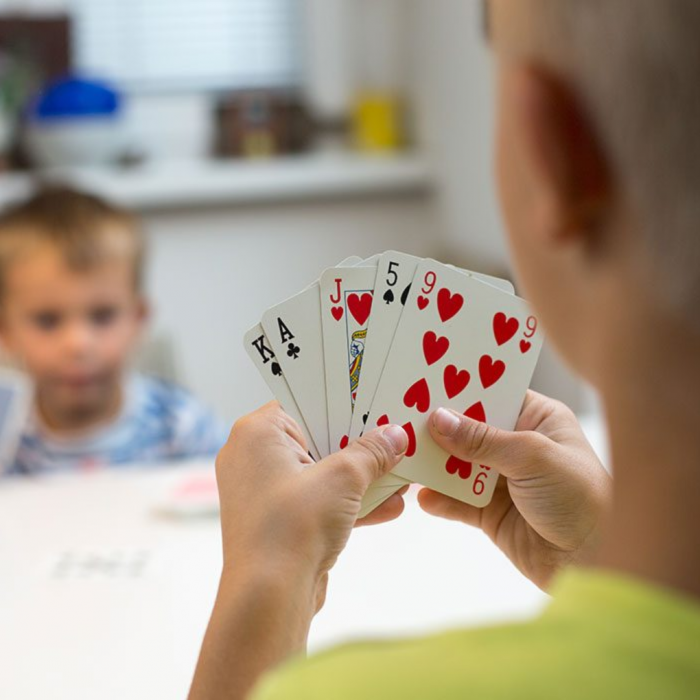
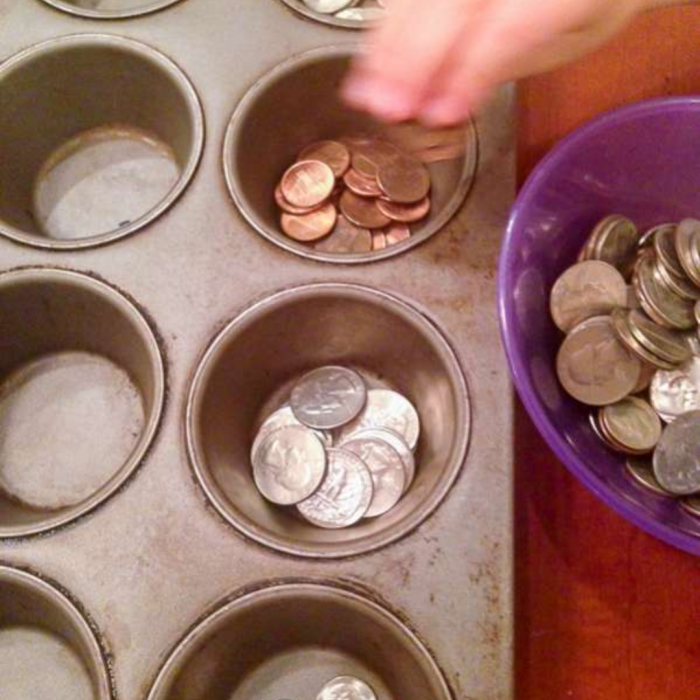
4. Amend simple games
Making small changes to simple and traditional games is another fun, budget-friendly but effective way to support early maths development. Below we have listed 3 of our favourite examples:
- Bingo is such a simple game and can be done with just pencils and paper. Depending on your little one’s developmental level you can use either simpler numbers from 1-10 or more advanced double-figure numbers. Children will learn to recognise numbers as they engage with the game and it is a great activity for multiple children to play together!
- Snakes and ladders. Again this is a game played by children everywhere yet has so many great benefits in terms of early maths development. As children play, they are subconsciously improving their counting skills and their number recognition. If you do not have this game readymade then simply grab a piece of chalk and draw it up yourselves!
- Simon says. This is a great game that can be used to support various aspects of learning. Why not try it to develop spatial relationships by asking children to do things such as put their hands “on top” of their head. Or place their “left foot” in front of their right? This will help to provide the foundational understanding of geometric concepts that will support later maths.

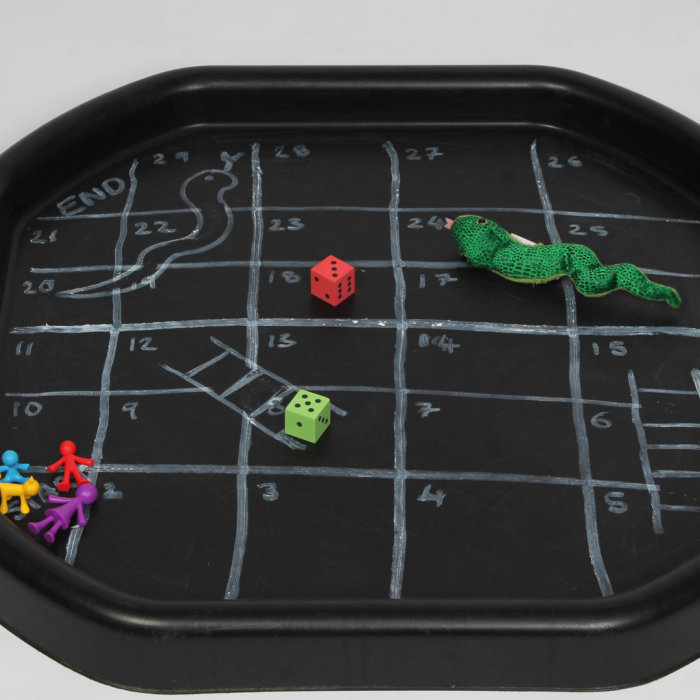
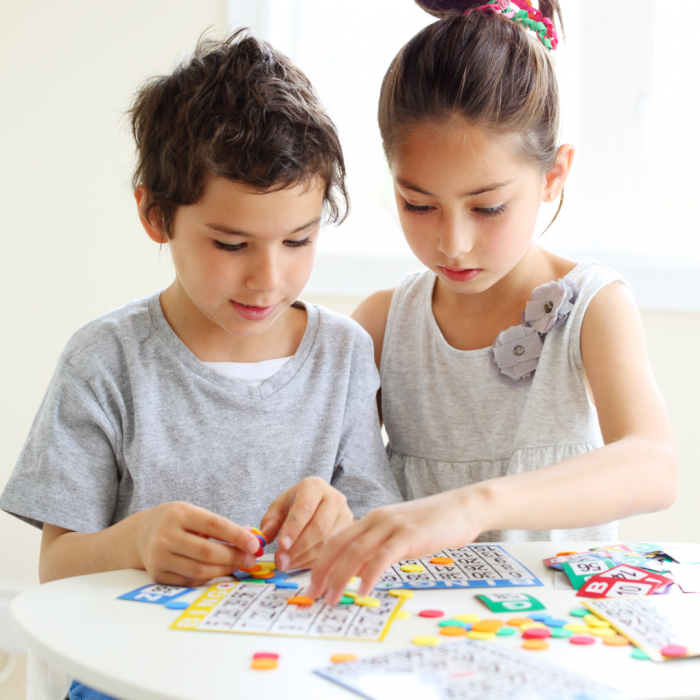
5. Think outside the box
Finally, it is easier than you think to incorporate maths learning into everyday activities. There are various opportunities throughout the day to hone in on different aspects of early maths. Some examples include:
- Books: not specifically maths books but any books! Children can be asked to answer questions such as “how many Xs do you count on this page” or “which X is bigger, this one or this one”. This way children can develop their early maths skills without any additional resources besides the ones you inevitably have in your setting!
- Baking! Baking is an activity full of opportunities for early maths development. Why not get your little ones involved in baking and ask them to measure and weigh different ingredients to have them understand numbers and early maths concepts? Alternatively, the same could be achieved outdoors with mud kitchen play. Simply supplement play with measuring jugs and scales to support learning.


We would love to hear about your budget friendly maths activity ideas! Share your ideas with us on social media by tagging us or using the hashtag #ExploreWithEYR



